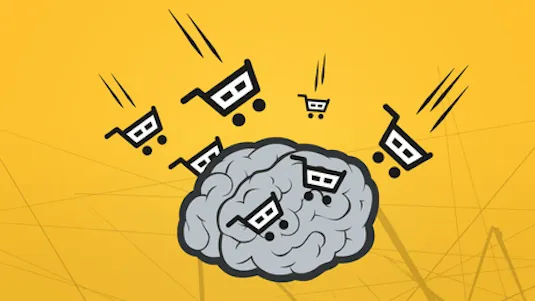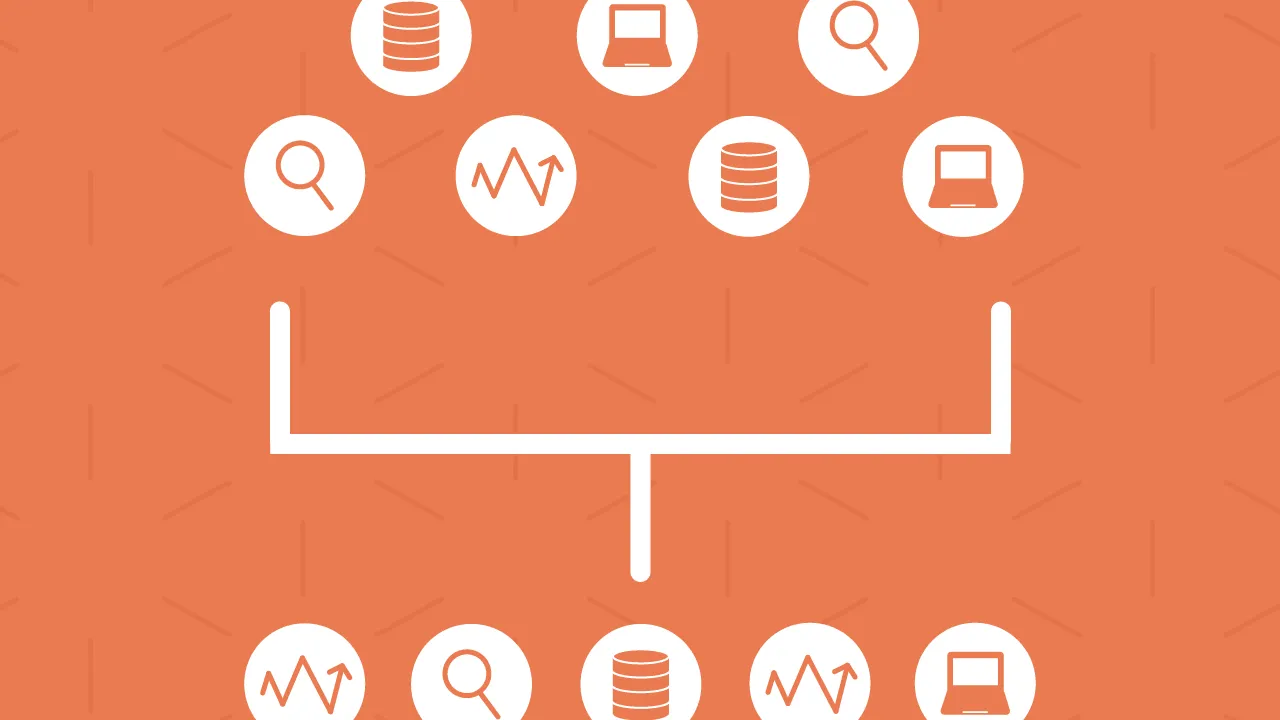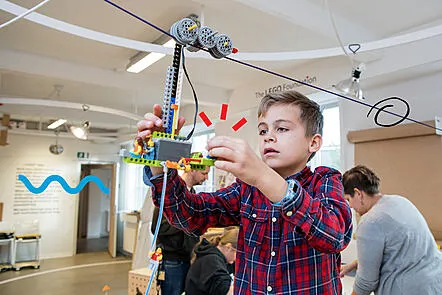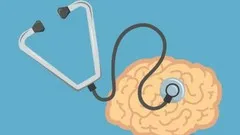
An Introduction to Consumer Neuroscience & Neuromarketing 
This course provides an introduction to the emerging fields of consumer neuroscience and neuromarketing. Participants will gain an understanding of the methods used to study consumer choice, the brain mechanisms involved, and the current and future applications of neuroscience in business. Through this course, learners will gain insight into how decisions are made and how initial responses can predict final choices. ▼
ADVERTISEMENT
Course Feature
![]() Cost:
Cost:
Free
![]() Provider:
Provider:
Coursera
![]() Certificate:
Certificate:
Paid Certification
![]() Language:
Language:
English
![]() Start Date:
Start Date:
3rd Jul, 2023
Course Overview
❗The content presented here is sourced directly from Coursera platform. For comprehensive course details, including enrollment information, simply click on the 'Go to class' link on our website.
Updated in [March 06th, 2023]
This course provides an introduction to the emerging fields of consumer neuroscience and neuromarketing. Participants will gain an understanding of the methods used to study consumer decision-making, and the basic brain mechanisms involved in consumer choice. They will also learn how to stay up-to-date on the latest developments in these fields. The course will provide an overview of the current and future uses of neuroscience in business.
[Applications]
After this course, participants can apply the knowledge they have gained to their own businesses. They can use the methods discussed to better understand consumer behavior and make more informed decisions. They can also use the information to develop more effective marketing strategies and create more engaging experiences for their customers. Additionally, participants can stay up to date on the latest developments in consumer neuroscience and neuromarketing by subscribing to relevant newsletters and attending conferences.
[Career Paths]
1. Consumer Neuroscience Researcher: Consumer neuroscience researchers use a variety of methods to study how consumers make decisions and how their brains respond to different stimuli. They use EEG, fMRI, eye-tracking, and other methods to measure brain activity and understand how it relates to consumer behavior. This field is rapidly growing, and researchers are in high demand as companies look to better understand their customers.
2. Neuromarketing Consultant: Neuromarketing consultants help companies use neuroscience to better understand their customers and optimize their marketing strategies. They use a variety of methods to measure consumer responses to different marketing messages and campaigns, and then use the data to inform their decisions. This field is growing rapidly, and consultants are in high demand as companies look to better understand their customers.
3. Neuropsychologist: Neuropsychologists use neuroscience to study the relationship between the brain and behavior. They use a variety of methods to measure brain activity and understand how it relates to behavior. This field is growing rapidly, and neuropsychologists are in high demand as companies look to better understand their customers.
4. Cognitive Neuroscientist: Cognitive neuroscientists use neuroscience to study the relationship between the brain and cognition. They use a variety of methods to measure brain activity and understand how it relates to cognitive processes such as memory, attention, and decision-making. This field is growing rapidly, and cognitive neuroscientists are in high demand as companies look to better understand their customers.
[Education Paths]
1. Bachelor's Degree in Neuroscience: A Bachelor's Degree in Neuroscience is a great way to gain a comprehensive understanding of the brain and its functions. This degree will provide students with a strong foundation in the biological and psychological aspects of neuroscience, as well as the tools to apply this knowledge to the study of consumer behavior. Students will learn about the latest research in the field, as well as the ethical implications of using neuroscience in marketing.
2. Master's Degree in Neuromarketing: A Master's Degree in Neuromarketing is a great way to gain a deeper understanding of the neuroscience behind consumer behavior. This degree will provide students with a comprehensive understanding of the brain and its functions, as well as the tools to apply this knowledge to the study of consumer behavior. Students will learn about the latest research in the field, as well as the ethical implications of using neuroscience in marketing.
3. PhD in Consumer Neuroscience: A PhD in Consumer Neuroscience is a great way to gain a comprehensive understanding of the neuroscience behind consumer behavior. This degree will provide students with a strong foundation in the biological and psychological aspects of neuroscience, as well as the tools to apply this knowledge to the study of consumer behavior. Students will learn about the latest research in the field, as well as the ethical implications of using neuroscience in marketing.
4. MBA in Neuromarketing: An MBA in Neuromarketing is a great way to gain a comprehensive understanding of the neuroscience behind consumer behavior. This degree will provide students with a strong foundation in the business aspects of neuromarketing, as well as the tools to apply this knowledge to the study of consumer behavior. Students will learn about the latest research in the field, as well as the ethical implications of using neuroscience in marketing. This degree is becoming increasingly popular as businesses look to gain a competitive edge by leveraging the latest neuroscience research.
Course Syllabus
What is Neuromarketing all About?
We first need to define the field – what are the key concepts, what are the key methods and reasons for employing neuroscience to study consumers and communication effects? In this module, we will introduce the topic and how some specific studies provide key insights into what neuroscience has to offer in relationship with more traditional methods.Attention & Consciousness
In the second module of this course we are turning to the functions of the brain, and we will first focus on attention and consciousness. This module will focus on some key concepts in attention and consciousness.Sensory Neuromarketing
In this module we will have contents filled on the topic of sensory neuromarketing. How are our senses affected differently as consumers? What can you do to organise your communications to better use all the senses? How does the brain actually use the senses? What tools do we have for assessing the use of senses, and how they affect consumers?Emotions & Feelings, Wanting & Liking
In this module, everything is about emotions and feelings, and the relationship between emotions and preference.Learning & Memory
Neuroethics and Consumer Aberrations
As we will see, our minds have a dual side: a conscious and an unconscious response and motivation, which are crucial to understanding consumer preference and choice. Indeed, unconscious emotional responses may turn out to be driving consumer choice to the same - or even larger - degree than conscious feelings. Are conscious feelings a mere after-the-fact rationalization upon conscious choice?Pros & Cons

Many neuroscience insights applied to marketing

Easy to follow weeks schedule

Well rounded course with theory, interviews, videos, and summaries

Opens new horizons to optimize business offerings

Detailed context into the process of neuroscience

Well organized and demonstrated by the instructor

Not intresting

Not enough testing opportunities

Not enough shorter videos

Requires serious commitments on budget, adaptation and computational power.
Course Provider

Provider Coursera's Stats at AZClass
This course introduces the emerging fields of consumer neuroscience and neuromarketing. Participants will learn about the methods used to study consumer choice, the brain mechanisms involved, and current and future applications of neuroscience in business. It will also cover the fundamental brain mechanisms involved in consumer choice, and how to stay abreast of recent developments in the field. Additionally, the course will provide an overview of current and future uses of neuroscience in business, such as understanding consumer behavior, developing effective neuromarketing strategies, and using neuroscience to inform marketing decisions. Learners will have a better understanding of the potential of consumer neuroscience and neuromarketing and how to apply these methods to their own businesses.
Discussion and Reviews
0.0 (Based on 0 reviews)
Explore Similar Online Courses

MapReduce and YARN

Coping with Changes: Social-Emotional Learning Through Play

Python for Informatics: Exploring Information

Social Network Analysis

Introduction to Systematic Review and Meta-Analysis

The Analytics Edge

DCO042 - Python For Informatics

Causal Diagrams: Draw Your Assumptions Before Your Conclusions

Whole genome sequencing of bacterial genomes - tools and applications

Control Your Subconscious Mind: Neuroscience Hidden Secrets

Perform an Excellent Neurological Bedside Exam


Start your review of An Introduction to Consumer Neuroscience & Neuromarketing